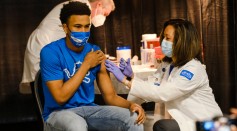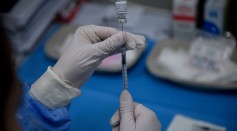adolescents

FDA Approves First Treatment for Severe Alopecia Areata in Adolescents, Offering Hope for Reversing Hair Loss

Adolescents Deal With Psychological Stress Better by Moderate Internet Use Than Spending Longer Hours Online

Teens Who Spend Moderate Time Online Cope Better With Psychological Stress Than Others, Study Reveals

Childhood and Adolescent Depression Linked to Higher Adult Anxiety, Substance Use Disorders

Brain Activation Underlying Adolescent Development Might Explain Risk Factors for Mental Health Disorders in Adulthood

Adolescents Who Stopped Studying Math After 16 Are at Greater Disadvantage in Cognitive Development
![Adolescents Who Experienced Bullying More Likely to Think Violent Thoughts [STUDY]](https://1721181113.rsc.cdn77.org/data/images/full/33288/adolescents-who-experienced-bullying-more-likely-to-think-violent-thoughts-study.jpg?w=237&h=131)
Adolescents Who Experienced Bullying More Likely to Think Violent Thoughts [STUDY]

Pfizer Seeks FDA’s Approval for Younger Population’s Vaccination Aged 12 to 15 Year Olds

Adolescents Show High Tolerance on Pfizer-BioNTech COVID-19 Vaccine, 100-Percent Efficacy

Examining the Emotional Experiences of Adolescents as They Age
Study Reveals Dating Could Cause Depression Among Adolescents
Scientists Hope to Look at Hair Composition in the Diagnosis of Mental Health in the Future
Study Unveils Loneliness Increases The Risk Of Early Death, More Deadlier Compared To Obesity
Most Popular

AI Revolution in Medical Education: Transforming How Healthcare Professionals Learn

China’s Tiangong Space Station to Expand Its Capabilities With New Modules

Exploring Life Beyond Earth: Study Claims Other Planets Could Be Suitable for Alien Life

Out of Office, Not Out of Mind: Planning for Employee Holiday Absences






